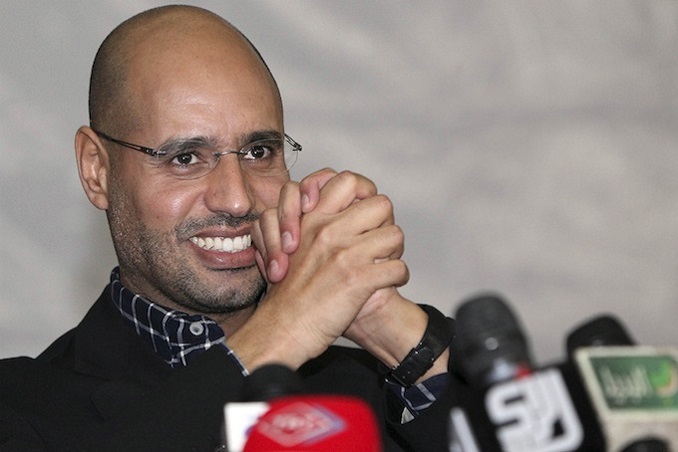Last updated on December 4th, 2021 at 01:18 pm
Libya – A Libyan court ruled on Thursday that a son of the late Libyan dictator Moammar Gadhafi can run in the 2018 presidential elections, rejecting the country’s highest electoral body’s decision to ban him. Libyan media channels stated that a court in the southern province of Sabha decided in favor of Seif al-Islam Gadhafi. After the building was encircled by armed men who stopped judges from entering, the court was unable to convene to hear the appeal for nearly a week. Libya’s High National Elections Committee rejected him last week, citing previous convictions related to the use of violence against protestors. The contender has filed an appeal against the decision.
The first round of voting is set to begin on Dec. 24, but a number of contentious issues must be handled prior to that. It’s uncertain whether Seif al-Candidacy Islam will face any further legal obstacles. He commended the judges for risking their lives “in the name of truth” in a late Thursday Twitter message. He also expressed gratitude to his family and fans. The election follows years of United Nations-led efforts to usher in a more democratic future and bring the country’s civil conflict to an end.
Libya has been in upheaval since Moammar Gadhafi was deposed by a NATO-backed rebellion in 2011. Over the last decade, the oil-rich country has been divided between an administration in the east, led by military commander Khalifa Hifter, and a United Nations-backed administration in Tripoli, aided by western-based Libyan militias. Mercenaries and foreign forces from Turkey, Russia, and Syria, as well as several regional countries, have aided either side. Seif al-Islam was condemned to death by a Tripoli court in 2015 for employing violence against protestors during his father’s 2011 rebellion. However, Libya’s competing authorities have subsequently questioned the judgment. In connection with the rebellion, he is also wanted by the International Criminal Court on allegations of crimes against humanity.
Related Posts
The next election will encounter a number of hurdles, including disagreements over electoral laws and periodic infighting among armed factions. Other challenges include the country’s deep schism between east and west, as well as the presence of thousands of foreign soldiers and forces. Libya is currently ruled by an interim administration, which was elected by Libyan delegates in Geneva in February after UN-led talks. Hifter and the country’s interim prime minister, Abdul Hamid Dbeibah, are among the other high-profile personalities who have filed candidacy forms. Several candidates’ appeals have been heard in local courts in recent days.
Armed men attacked four voting sites in the town of Azizia and one in Tripoli’s capital on Thursday, according to the country’s supreme election authority. Over 2,000 voting cards, which eligible voters are expected to carry on election day, were stolen or destroyed, according to the commission.

